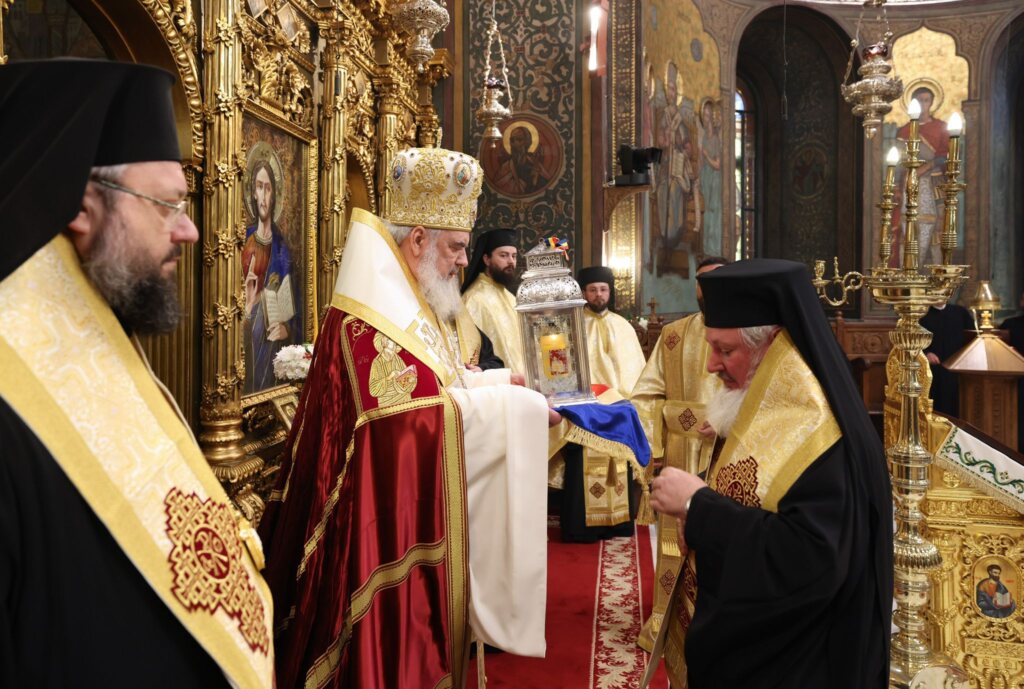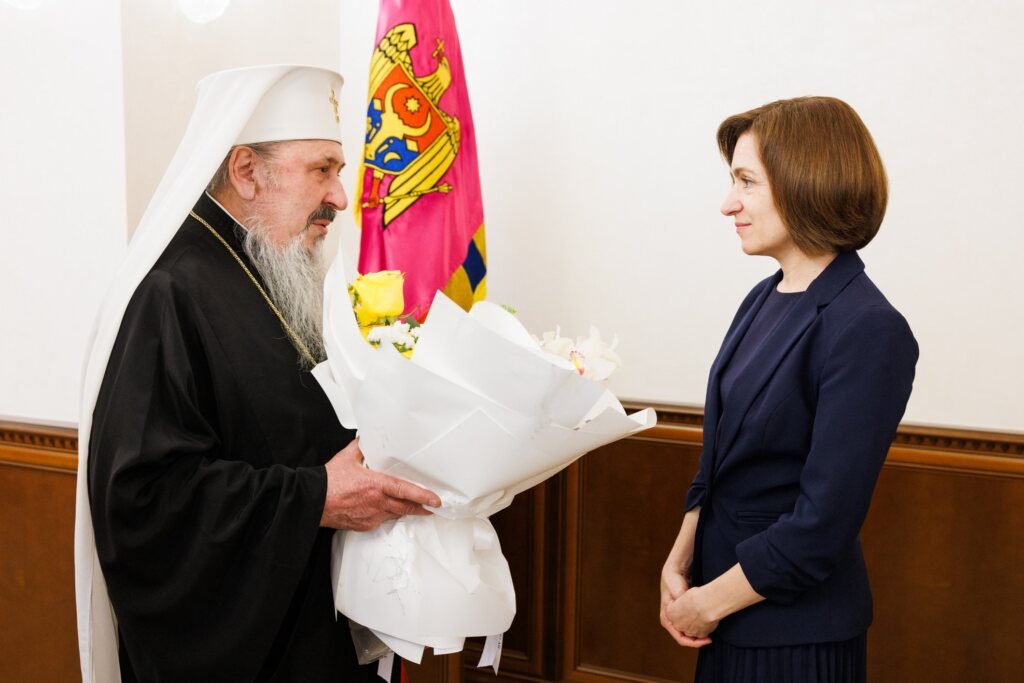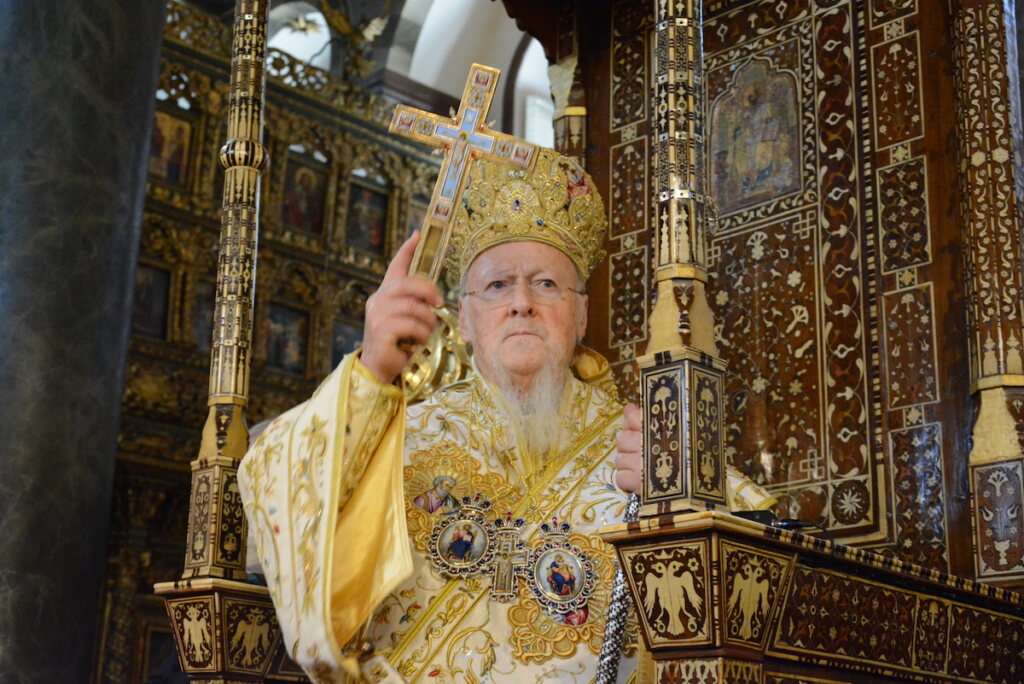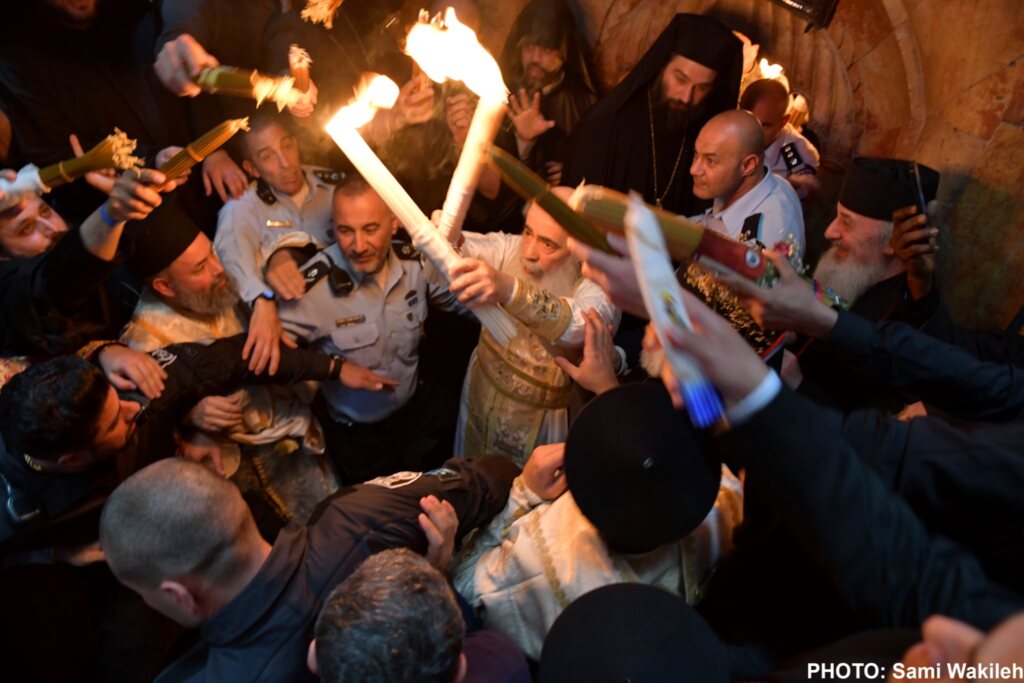Today, 21 July 2013, the 4th Sunday after Pentecost, named the Sunday of Healing the centurion’s servant, His Beatitude Daniel, Patriarch of Romania, celebrated the Divine Liturgy in the chapel of “Saint Great Martyr George” of the Patriarchal Residence.
After the religious service, His Beatitude Patriarch Daniel spoke to those present about the spiritual qualities of the Roman centurion: “Today’s Gospel shows us three great spiritual qualities of this centurion who had 100 soldiers subordinated to him. We see, first of all, his merciful love. Secondly, we see his great lowliness, and thirdly, his strong faith. The centurion’s faith was the following: Jesus of Nazareth heals people from diseases, raises the fallen ones, changes lives through His healing words, through the good health and life giving word. Therefore, he is the man who works with divine power.”
“This faith that the Saviour finds at the Roman centurion has a special significance because it is through this faith found at the nations, namely at other ethnic groups but the Jewish people, that Jesus Christ, our Saviour can emphasise a special missionary truth, namely: not only the Jews are called to salvation, but all the peoples, and rather often some pagans will believe in Christ more than some of the Jews”, His Beatitude said.
The Gospel is very significant for the life of the Church and of every Christian, His Beatitude Daniel said, because: “We learn, first of all, from this Roman centurion, who was good hearted and who had built a synagogue in Capernaum, that his merciful love received an answer on behalf of Jesus Christ, our Saviour, namely Jesus’ merciful love who healed the centurion’s servant. This merciful kindness is united with a deep lowliness and strong faith showing the image of God in the human who can be emphasised as a light at the meeting with Jesus, as a reflex of the merciful kindness of God for the humans. (…) The centurion’s servant is the image of the man who suffers and can no longer ask healing or anything else for himself, so that other people must help him. Thus, we see that the centurion becomes a teacher for us when he urges us to help those who cannot help themselves, to pray God for the healing of those who cannot do it for themselves or go to church for various reasons.”
Then, the Patriarch of Romania showed that we learn from the Roman centurion how to pray for those who cannot go to church and how to help those in need: “The Church learned from the centurion how to pray for the good health of all people, but especially for those lonely and suffering, in their own homes, in hospitals, for the helpless who cannot express their sorrow directly, their suffering being expressed by a grieved mother, a faithful friend, or a merciful man who prays God and calls the physician to help the sick. It should be also mentioned that this centurion takes care of one of his subordinates. Usually a subordinate takes care of his superior. Here we see a fatherly and brotherly care of a military for one of his subordinates”.
The value of every human person is unique and infinite no matter the rank or title
To end with his speech, His Beatitude Patriarch Daniel spoke about the mysterious power of the word who can heal or hurt: “The centurion shows he has special appreciation for his servant, even if he is subordinated to him. Yet, we see the strong faith of this centurion. He starts from a daily experience, namely that of the word that moves persons and then passes to the strong, healing, saving Word of Jesus Christ, our Saviour. This thing shows us the mystery of the word that can heal. The words can heal or hurt people. We can make somebody ill when using bad, offensive words, and we can rise people from disease, distress, and loneliness with kind, merciful, encouraging words. The healing word does not do wonders by all means, but it creates communion, brings close those alienated, gives hope to those in distress, and brings joy to the grieved ones.
Therefore, this Roman centurion teaches how to use the words for giving good health and joy”.






